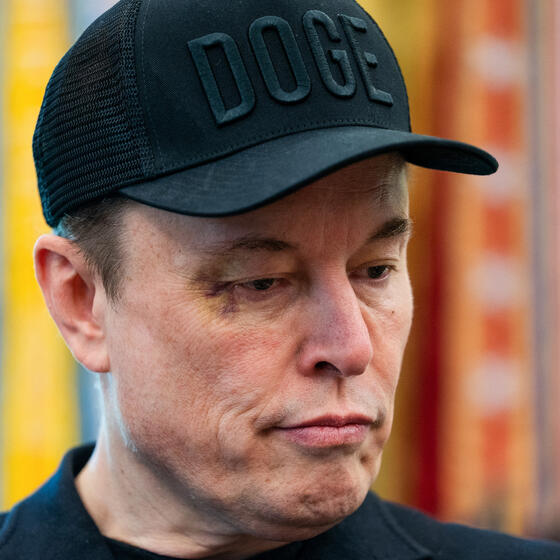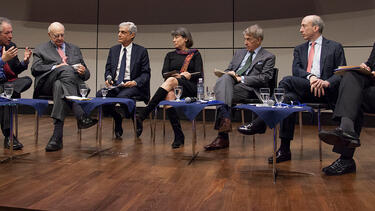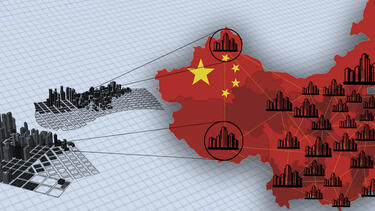Politics and Policy
Are We Witnessing the Implosion of the World’s Richest Man?
Elon Musk has less leverage in his battle with Donald Trump than he thinks, Yale SOM leadership expert Jeffrey Sonnenfeld and co-author Steven Tian write. But neither of the former allies can come away from this feud with a win.

When Does Regulation Work?
Regulation is often a contentious issue, but most agree that some is necessary and too much is harmful. How do you find the sweet spot? Yale Insights asked practitioners to talk about regulation that impacts their industries.
What Sparks Social Change?
Social structures, attitudes, and laws can seem unchangeable—and then in the historical blink of an eye, a society is transformed. What prompts such change? Margaret Marshall, the judge who wrote a key decision in the development of same-sex marriage in the U.S., says it takes a lot more than any one court case.

Can We Fix the Financial System?
Six highly influential policymakers surveyed the current state of the world’s major financial institutions and discussed how to prevent another crisis.

What Should We Understand about Urbanization in China?
The scale of urbanization in China is without precedent in human history. The transformation is also complex and nuanced, says Yale’s Karen Seto, with cities taking different approaches to environmental issues, pace of development, and global connections.

Why Do We Need Experts?
Today’s political and cultural debates reflect a lack of consensus not just on policy but on the facts themselves—and on who is qualified to judge the truth. Robert C. Post, the dean of Yale Law School, argues for an approach to free speech that preserves the role of expertise.
Robert Shiller: Owning a Home Isn’t Always a Virtue
In the New York Times, Professor Robert Shiller writes that the United States should reduce government subsidies for homeownership, while finding another way to promote household saving.
Is antitrust law keeping up?
Can laws created to rein in the monopolies of the industrial age still work in the information age? After spending a year as the top antitrust economist at the U.S. Department of Justice, Professor Fiona Scott Morton describes the state of antitrust regulation today.
Want to Fix Social Security? Use the Right Wrench
In a New York Times op-ed, Professor Robert Shiller writes that President Obama’s proposal to change how inflation is measured in Social Security benefit calculations “…solves the wrong problem, and, in doing so, undermines the integrity of the Social Security system.” One alternative, suggests Shiller, is to link retirees’ benefits to GDP per capita, in current dollars, which would align the interests of the retired with those of society as a whole.
Yes, We’re Confident, but Who Knows Why
As housing, unemployment, the stock market, and the overall economy show signs of recovery, Professor Robert Shiller writes in the New York Times that we understand little about how people’s confidence affect these major turning points. "…[P]ublic thinking is inscrutable. We can keep trying to understand it, but we’ll be puzzled again the next time the markets or the economy make major moves."
The Language We Speak Predicts Saving and Health Behavior
Languages differ in how much they distinguish between the present and the future. Professor Keith Chen found that speakers of languages that do not rely on the future tense make more future-oriented choices, including saving more money, retiring with more wealth, and smoking less.